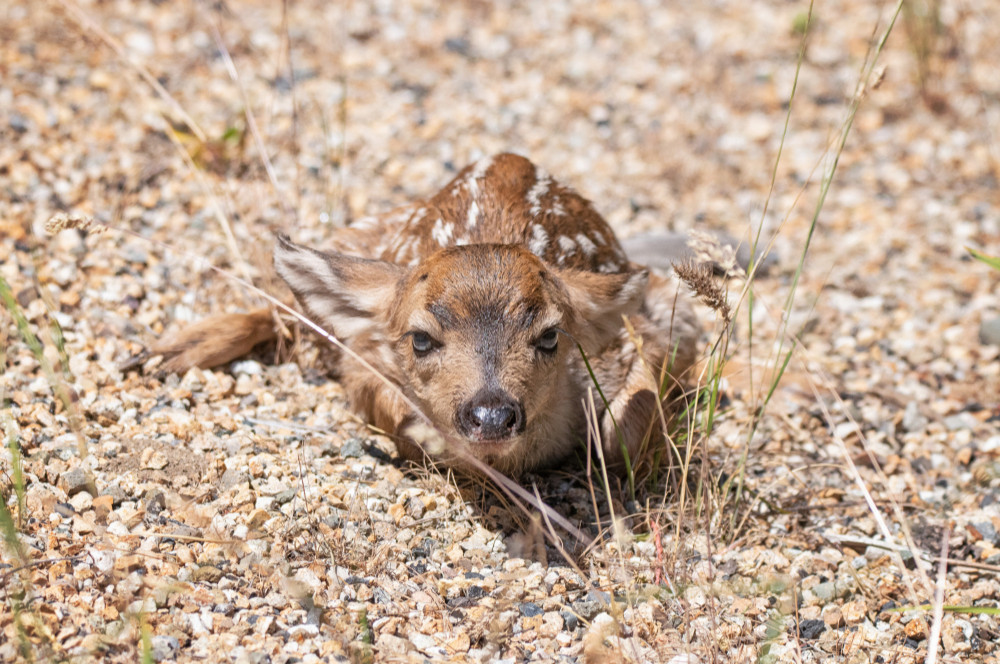![]()

Seeing young wild animals alone is common this time of year. Though some may wish to “rescue” these animals, don’t. Wildlife parents are doing their part to make sure their babies survive.
Here are some rules of thumb from the Nebraska Game and Parks Commission regarding wildlife babies:
- Young non-feathered birds and nests with eggs discovered on the ground should be placed back in the tree. Baby birds covered in feathers found on the ground are being tended to by their parents; leave them alone.
- A lone fawn may appear to be abandoned or injured, but the mother frequently is off feeding or drinking. Do not move it. The longer the fawn is separated from its mother, the slimmer the chance it will be reunited with her. Know it is normal for a doe to leave its fawn to keep it from being detected by predators. Predators can see the doe as it feeds, so she leaves the fawn hidden and leaves the area to draw attention away from the fawn’s location.
- Baby rabbits are left unattended through much of the day and night. Mother cottontails do this to prevent drawing predators to the nest. If you see the rabbits, leave them alone.
- Do not try to raise wildlife babies as pets. As animals mature, they become more independent and follow natural instincts to leave and establish their own territories. Rescued animals are poorly prepared for life in the wild.
- Most wildlife babies are protected by state or federal law, and it is illegal to possess them.
